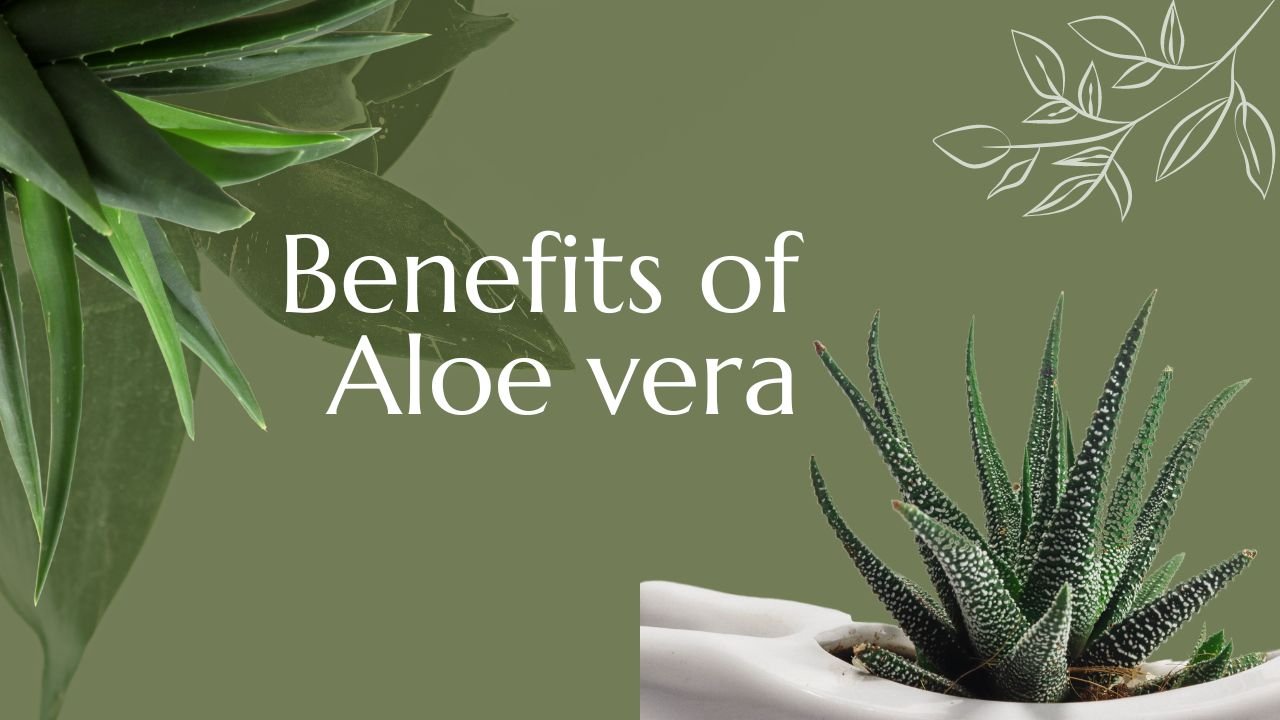Benefits of Aloe vera
Aloe vera
1. It contains healthful plant compounds
Share on PinterestAloe vera may help treat skin injuries.
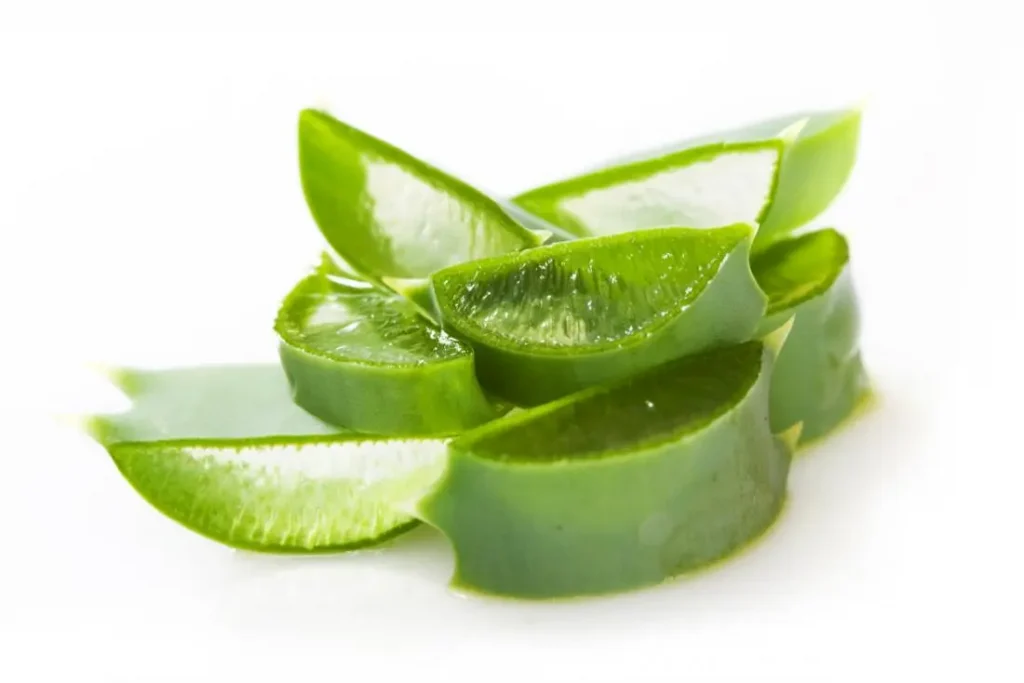
2. It has antioxidant and antibacterial properties
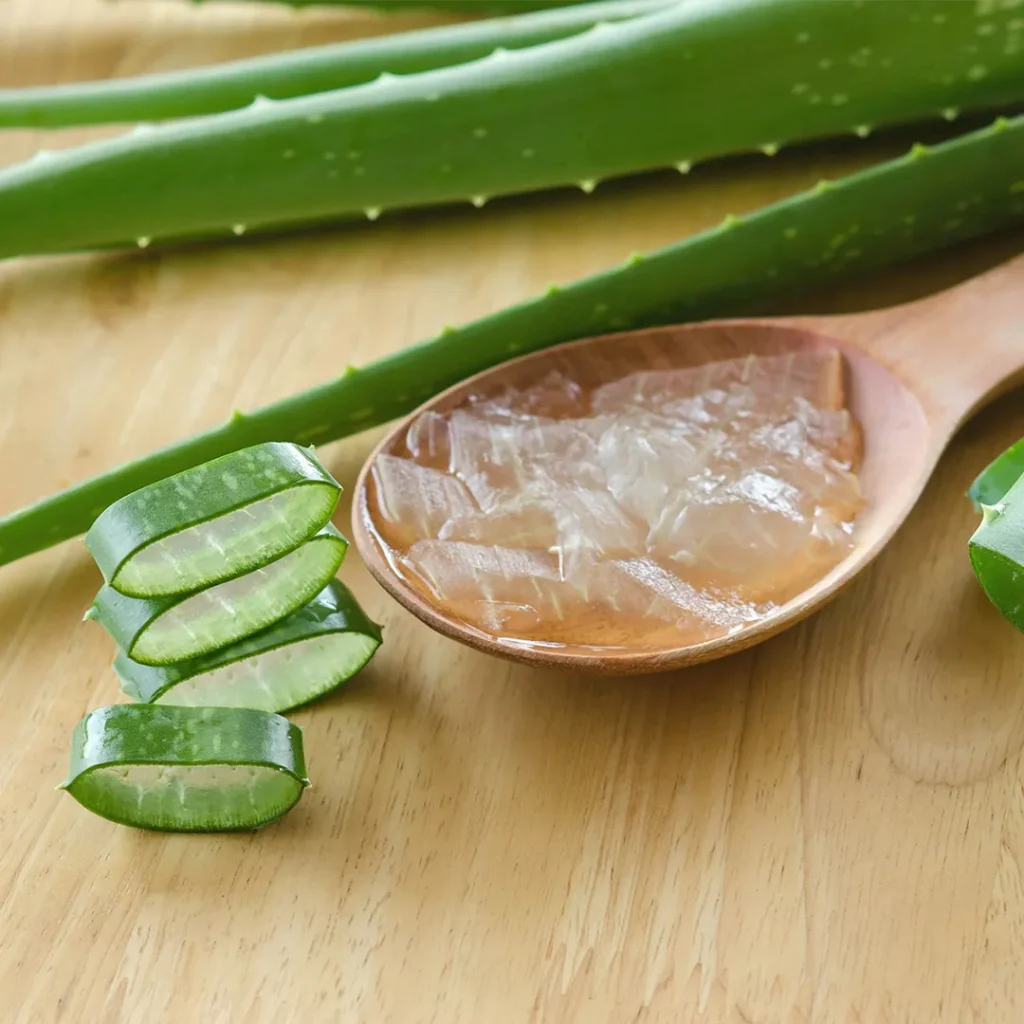
Antioxidants are important for health. Aloe vera gel contains powerful antioxidants belonging to a large family of substances known as polyphenols.
These polyphenols, along with several other compounds in aloe vera, help inhibit the growth of certain bacteria that can cause infections in humans.
3. It accelerates wound healing
People most often use aloe vera as a topical medication, rubbing it onto the skin rather than consuming it. In fact, it has a long history of use in treating sores and particularly burns, including sunburn.
The United States Pharmacopeia describe aloe vera preparations as a skin protectant as early as 1810–1820
Studies suggest that it is an effective topical treatment for first- and second-degree burns.
For example, a review trusted source of experimental studies found that aloe vera could reduce the healing time of burns by around 9 days compared with conventional medication. It also helped prevent redness, itching, and infections.
The evidence for aloe vera helping heal other types of wounds is inconclusive, but the research is promising.
4. It reduces dental plaque
Tooth decay and diseases of gum are very common health problems. One of the best ways to prevent these conditions is to reduce the buildup of plaque, or bacterial biofilms, on the teeth.
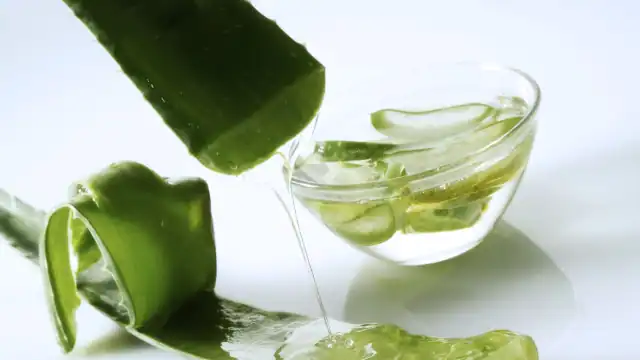
After 4 days of use, the aloe vera mouth rinse appeared to be just as effective as chlorhexidine in reducing dental plaque.
Another study trusted source found similar benefits of aloe vera mouth rinse over a 15- to 30-day period.
Aloe vera is effective in killing the plaque-producing bacterium Streptococcus mutants in the mouth, as well as the yeast Candida albicans.
5. It helps treat canker sores
Many people experience mouth ulcers, or canker sores, at some point in their lives. These usually form underneath the lip, inside the mouth, and last for about a week’s trusted source.
Studies have shown that aloe vera treatment can accelerate the healing of mouth ulcers.

For example, in a 7-day study trusted source of 180 people with recurrent mouth ulcers, applying an aloe vera patch to the area was effective in reducing the size of the ulcers.
6. It reduces constipation
Aloe vera may also help treat constipation.
This time it is the latex, not the gel, that provides the benefits. Latex is a sticky yellow residue present just under the skin of the leaf.
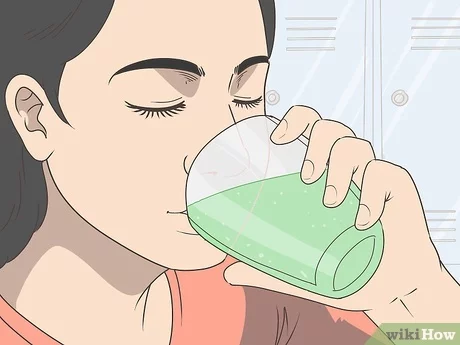
The key compound responsible for this effect is called aloin, or barbaloin.
However, people have raised concerns about safety with frequent use. For this reason, aloe latex has not been available in the U.S. as an over-the-counter medication since 2002.
Contrary to popular belief, aloe vera does not appear to be effective against other digestive conditions, such as irritable bowel syndrome or inflammatory bowel disease
7. It may improve skin and prevent wrinkles
There is some preliminary evidence to suggest that topical aloe vera gel can slow the ageing of the skin.
In 2009, 30 females over the age of 45, taking oral aloe vera gel increased8. It lowers blood sugar levels
People sometimes use aloe vera as a remedy for diabetes. This is because it may enhance insulin sensitivity and help improve blood sugar management.
For example, eight studies found that aloe vera could have benefits for people with prediabetes or type 2 diabetes due to its effects on glycaemic control.
However, the quality of the existing studies is not ideal, so scientists do not currently recommend using aloe vera for this purpose.
Skin
Benefits of aloe vera for the face

Aloe vera is a cactus-like plant that grows in desert regions around the world. Its leaves produce a gel that is rich in vitamins A, C, E, and B12.
Using aloe vera on the face has benefits because:
- Its anti-inflammatory properties can reduce pain, swelling, and soreness of wounds or injuries
- it supports the production and release of collagen
- it can speed up wound healing time and limits scarring
- It reduces the healing time of first-degree and second-degree burn
- it is effective in treating fungal and bacterial infections
- it has an antioxidant effect that can help repair sun damage and slow down the ageing process of the skin
- It protects the skin from the damaging effects of radiation therapy
- it contains 98% water, which helps moisturize, soothe, and hydrate the skin
- it helps to make the skin more Flexible and supple, rather than stiff and leathery
- It has a cooling effect on rashes or sunburns
Shampoos and other hair products have not been shown to have a significant impact on this rate, which is primarily determined by genetics and an individual’s health.
Aloe vera is thought to work chiefly because of its contents, which include:
- vitamins
- essential amino acids
- minerals, such as copper and zinc, which are important for hair growth
- plant steroids
- fatty acids

Do types of hair, such as curly hair, react differently?
Each type of hair requires its own kind of care. The characteristics of an individual’s hair, such as its density, texture, diameter, degree of curl, and porosity will affect how it responds to a treatment or product.
African-American hair tends to be very dry and uses products with natural ingredients, such as aloe vera, for hair care.
With its rich mix of vitamins, minerals, moisture, and more, aloe vera can help protect moisture levels in dry hair.
How do you apply it to the hair?
Individuals interested in aloe vera for hair care can choose from a wide variety of ways to apply it, ranging from homemade to mass-produced.
Some people like to apply fresh aloe vera gel directly to their scalps. To do so:
- cut a leaf from a live aloe vera plant
- using a spoon, collect the gel (some like to blend it with coconut or olive oil)
- rub the gel or mixture directly into the scalp and let it sit for an hour
- use a mild shampoo to wash the hair and scalp
- repeat this process 2–3 times a week, as needed
Since some people are sensitive to aloe vera, it is best to proceed cautiously and try rubbing a small amount of the gel onto the wrist first, to see if there is a reaction, before applying it to the scalp.
Hair masks are also a popular way to use aloe vera for hair care. In this approach, aloe vera is mixed with one of the following:

- honey
- jojoba oil
- egg whites
- fenugreek
The mixture is then massaged into the scalp and hair, a shower cap is worn, and the mixture is left on for 15 minutes to 1 hour, after which it is rinsed off with mild shampoo.
It is also possible to buy aloe vera in some commercial products.
What are the different forms of aloe vera?
Aloe vera is widely available for purchase in many forms. While individuals sometimes cut the leaves off plants and apply the fresh gel directly, it can also be purchased in many different forms. These include as a liquid, an oil, and a gel, or in pills, shampoos, lotions, creams, and sprays.



